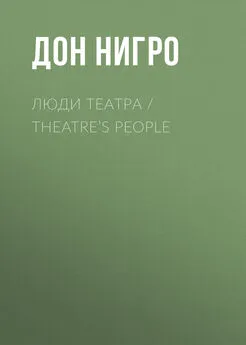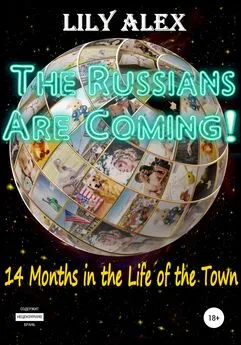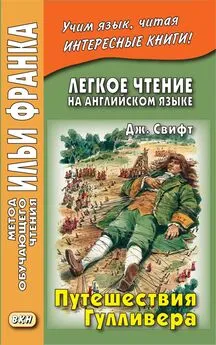The Theatre - Kellerman, Jonathan
- Название:Kellerman, Jonathan
- Автор:
- Жанр:
- Издательство:неизвестно
- Год:неизвестен
- ISBN:нет данных
- Рейтинг:
- Избранное:Добавить в избранное
-
Отзывы:
-
Ваша оценка:
The Theatre - Kellerman, Jonathan краткое содержание
For all its many crimes of passion and politics, Jerusalem has only once before been victimized by a serial killer. Now the elusive psychopath is back, slipping through the fingers of police inspector Daniel Sharavi. And one murderer with a taste for young Arab women can destroy the delicate balance Jerusalem needs to survive.
Kellerman, Jonathan - читать онлайн бесплатно полную версию (весь текст целиком)
Интервал:
Закладка:
"What is it?"
"Do you needing anything else, Mr. Worberg?"
"Yeah, now that you mention it. Go down to Wimpy's and get me a hamburger-onions, mayonnaise, relish. Got that?"
Mutti nodded energetically. "And for drink?"
"A beer."
"Okay, Mr. Worberg." The boy ran off slamming the door behind him.
Alone once again, Wilbur turned to the mail. A confirmation, finally, of his expense vouchers from the Greek vacation. Invitation to a Press Club party in Tel Aviv, regrets only; overseas express letter from a Nashville attorney dunning him for back alimony from Number Two. That one made him smile-it had been routed through Rio and New York, taking six weeks to arrive. Two weeks past the deadline the legal eagle had set before threatening to move on to "vigorous prosecution." Wilbur dropped it in the circular file and examined the rest of the mail. Bills, the Rockefeller Museum newsletter, an invite to a buffet/press conference thrown by the WIZO women to announce the groundbreaking of a new orphanage. Toss. Then something, midway through the stack, that caught his eye.
A plain white envelope, no postage, just his name in block letters written with such force that the W in Wilbur had torn through the paper.
Inside was a sheet of paper-white, cheap, no watermark.
Glued to the paper were two paragraphs in Hebrew, both printed on glossy white paper that appeared to have been cut out of a book.
He stared at it, had no idea what any of it meant, but the presentation-the hand delivery, the force of the writing, the cutouts-smacked of weirdness.
He kept staring. The letters stared back at him, random angles and curves.
Incomprehensible.
But definitely weird. It gave him a little twist in the gut.
He knew what he needed.
When Mutti got back with the food, he greeted him like a long-lost son.
A sweltering Thursday. By the time Daniel arrived at the scene, the air was acrid with scorched rubber and cordite, the pastoral silence broken by gunfire and poisoned by hatred.
Roadblocks had been thrown up across the Hebron Road just south of the entrance to Beit Gvura-steel riot grills, manned by soldiers and flanked by army trucks. Daniel parked the Escort by the side of the road and continued on foot, his pakad's uniform earning free passage.
A cordon of troops, four rows deep, stood ten meters beyond the barriers. Gvura people were massed behind the soldiers, eye to eye with MPs who walked back and forth, suppressing spurts of forward movement, shepherding the settlers back toward the mouth of the settlement. The Gvura people brandished fists and shouted obscenities but made no attempt to storm the MPs. Daniel remembered their faces from the interview, faces now twisted with rage. He searched for Kagan or Bob Arnon, saw neither of them.
On the other side of the cordon was a seething mob of Arab youths who had marched from Hebron bearing placards and PLO flags. Some of the placards lay tattered in the dust. A grainy mist shimmered in the heat and seemed to hover over the Arabs-some of them had rolled old auto tires from town and set them afire. The flames had been extinguished, the tires scattered by the side of the road, steaming like giant overcooked doughnuts.
The command post was an army truck equipped with full radio capability, stationed by the side of the road in a dusty clearing ringed by a dozen ancient fig trees. Surrounding the truck were several canvas-covered MP jeeps, all unmanned.
Just beyond the trees was another clearing, then a small vineyard, emerald leaves shading clusters of fruit that glistened like amethysts in the afternoon sun. Four military ambulances and half a dozen transport vans filled the clearing. Some of the vans were bolted shut and under the guard of soldiers. Next to them was a civilian vehicle-a small mud-colored Fiat with Hebron plates, sagging on flattened tires, its hood pocked with bullet holes, its windshield shattered.
A pair of vans and one of the ambulances pulled out, driving in the dirt by the side of the road until past the barriers, then turning onto the asphalt, sirens blaring, speeding north, back to Jerusalem. Daniel saw activity near another of the ambulances: white blurs, crimson blood bags, the clink and glow of intravenous bottles. He spotted Colonel Marciano's distinctive figure at the front bumper of the truck and walked toward it. Moving quickly but cautiously, keeping one eye on the action.
The cordon of soldiers advanced and the Arabs retreated, but not smoothly. Scuffles broke out as authority confronted resistance-shoving matches punctuated by hate-filled screams, grunts of pain, the dull, insulting abrasion of metal against flesh.
Marciano lifted a megaphone to his lips and barked an order.
The rear row of the cordon fired its rifles in the air and a shudder coursed through the mob.
For a moment it seemed as if the Arabs were ready to disperse. Then some of them began shrieking PLO slogans and sitting down on the asphalt. Those who'd begun to retreat backed into them, stumbling and falling; they were lifted by front-line soldiers and pushed back. The sitters were quickly removed, picked up by the scruff and shoved over to MPs who propelled them toward the vans. More resistance, more arrests, a bedlam of bodies, boiling and spitting.
Within seconds the Arabs had been forced back several meters. All at once, several large rocks arced from the center of the mob and rained down upon the cordon. One landed near Daniel and he ran for cover, crouching behind a nearby jeep.
He saw soldiers raise their arms protectively, a blossom of blood spring from the cheek of one unlucky private.
Marciano bellowed into the megaphone.
The soldiers fired several volleys, this time over the heads of the crowd. The Arabs panicked and ran backward; a few stragglers were trampled in the process.
More slogans, more stones.
A soldier crumpled.
Megaphone orders. Stones. Soldiers with rifles fired rubber bullets directly into the mob. Several Arabs clutched arms and legs in agony and fell, writhing.
The mob was a thing of the past, now, the Arabs fanning out toward Hebron, each man for himself. Tripping over one another in a hasty sprint for safety.
Suddenly a long-haired, bearded man of about twenty materialized out of the human swirl, dashing wild-eyed toward the troops, a long knife in one hand, a jagged hunk of concrete in the other.
He raised the knife, threw himself at the soldiers, who closed ranks and fired. Lead bullets.
The long-haired man's body seemed to take off in flight, floating and gyrating, billowing some puffs, spouting ragged black holes. Then the holes filled with red and overflowed. Blood spurted out of him. Just as abruptly as he'd appeared, he collapsed, expelling his life-juices into the dirt.
Some of the dispersing Arabs had turned to watch him die. They stopped, frozen, mouths shaped into paralyzed ellipses.
The cordon advanced, walking around the dead man, pushing the remaining Arabs back. Moving forward inexorably until every rioter was in custody or fleeing.
The road was devoid of movement now, decorated with blood, prostrate forms, and spent cartridges.
Ambulance attendants rushed forward with stretchers, picking up wounded soldiers and Arabs, leaving for last the dead knife-wielder.
"Let him rot!" shouted a Gvura man. Other settlers took up the cry and turned it into a chant. They began moving forward. Colonel Marciano spoke into the megaphone; the rear row of the cordon reversed itself and faced the Gvura people.
"Go ahead," screamed one woman. "Shoot Jews! Damned Nazis!"
The soldiers remained impassive. Granite eyes in baby faces.
Daniel walked up to Marciano. The colonel was surrounded by subordinates but acknowledged him with a nod as he delivered order after order in a calm, even voice.
Marciano was a huge man-two meters tall-with an egg-shaped body that seemed to balance precariously on long, stilt-like legs. His head was egg-shaped, too-bald, brown, deeply seamed, with a large, fleshy nose and a chin that could have used some reinforcement. Soft-spoken without his megaphone, he was a career man, a hero of the '67 Sinai assault and Yom Kippur, in charge of Judean security for the past two years. An organized thinker and reader of philosophy and history who seemed to take it all in stride.
When the subordinates had left to carry out his orders, he gripped Daniel's hand and said, "It's over."
"The call I received said it had to do with my case."
"Could be. One second."
Two soldiers were carrying the dead Arab to the side of the road, holding him low to the ground so that his buttocks dragged in the dirt. Marciano picked up his megaphone, said, "Lift him," sharply. Startled, the soldiers complied.
Before the loudspeaker had been lowered, an army lieutenant came over and said, "What about them, Barukh?" Pointing to the Gvura people, who were still shouting and cursing.
"Inform Shimshon in Hebron that movement north of the city limits is restricted for twenty-four hours," said Marciano. "Maintain a line of troops one hundred meters to the south, and see to it that no one without legitimate business crosses it for the rest of the day. Once the line's established, leave them alone to blow it off."
The lieutenant wiped his brow and left.
"Come on," said Marciano. He loped to the back of the truck, climbed in, and Daniel followed. The two of them sat on the hot corrugated-steel floor of the truck bed. Marciano lit a cigarette and dragged deeply, then pulled a canteen off his belt, took a swig, and passed it to Daniel. The water inside was cool and sweet.
Marciano stretched out his long legs.
"This is what happened," he said. "About two hours ago, one of the Gvuranik women was standing out in front of the settlement, waiting for a lift to Jerusalem-a pregnant one. She had an appointment at Shaarei Zedek Hospital. One of Kagan's deputies-American named Arnon-was on transport duty, supposed to be coming back with a earful of schoolbooks, then making a return trip to pick up a Torah and take her to her appointment. He was late. She waited by herself for a while, knitting booties.
"Suddenly this car drives up." Marciano pointed to the mud-colored Fiat. "Three Arabs get out, two with butcher knives. The other's packing a pistol-one of those cheap
Czech jobs, as likely to blow up in your hand as fire. They start moving on the pregnant one. She's terrified, can't move. They're saying something about blood sacrifices and sin offerings, revenge for dead virgins. She starts to scream. They clamp a hand over her mouth, start pulling her into the car.
"Meanwhile Arnon pulls up, sees what's happening, and runs over to help. He's got a pistol, runs toward them waving it but is afraid of hitting the woman. The Arab with the gun starts shooting-misses three times even at close range but finally gets Arnon in the belly.
"Arnon's down. The pregnant woman manages to break free, starts running and screaming at the top of her lungs. The Arabs go after her. Mrs. Kagan happens to be taking a walk near the outskirts of the settlement, hears the gunshots and the screams and rushes over. She's packing an Uzi, pulls it into firing position. The Arab with the gun shoots at her, misses, then starts to run away. Mrs. Kagan goes after all three of them, opens up on the car, kills two of them right away, wounds the third. By now, Gvuraniks are streaming out. They pull the wounded Arab out of the car and beat him to death."
Marciano paused for a drag on his cigarette. "Pretty picture, eh, Dani? Wait, there's more. Seems the three Arabs were only part of the gang. There are four others waiting in a flat in Hebron-knives, shroud, looks like they had a revenge party in mind. When the Fiat doesn't show up, these guys drive up the road to investigate, see Gvura people standing over the dead bodies of their comrades, and pull out their Czechis. The Gvuraniks spot them, go after them-lots of shooting, no one hit. The Arabs step on the gas, speed back to Hebron telling everyone that the Jews are on a rampage, murdering Palestinian heroes. To make matters worse, some professor from Bir Zeit-asshole punk named El Said-is visiting an uncle, hears the news, and steps out in the middle of the souq with an impromptu speech that whips up a mob. The rest you saw."
Читать дальшеИнтервал:
Закладка:



![Джеймс Купер - Пионеры, или У истоков Саскуиханны [The Pioneers, or The sources of the Susquehannah]](/books/1066142/dzhejms-kuper-pionery-ili-u-istokov-saskuihanny-t.webp)





